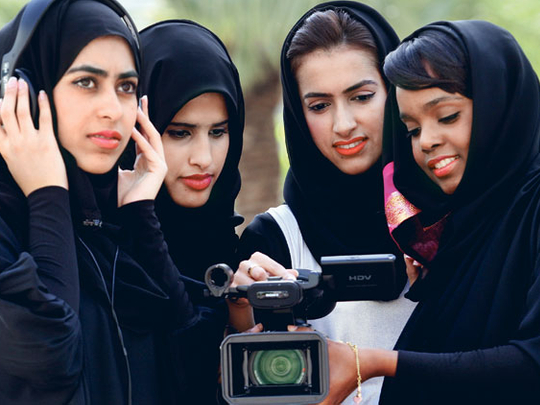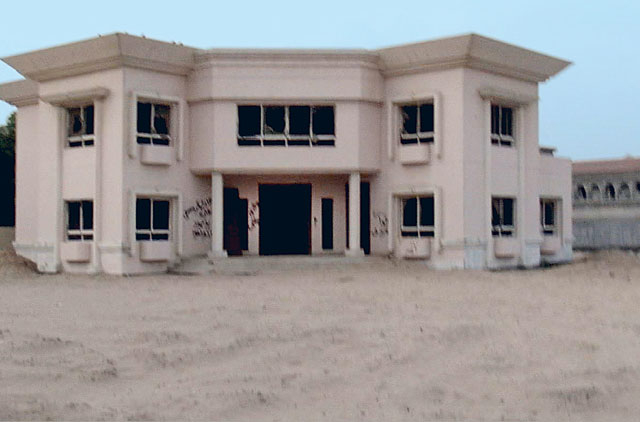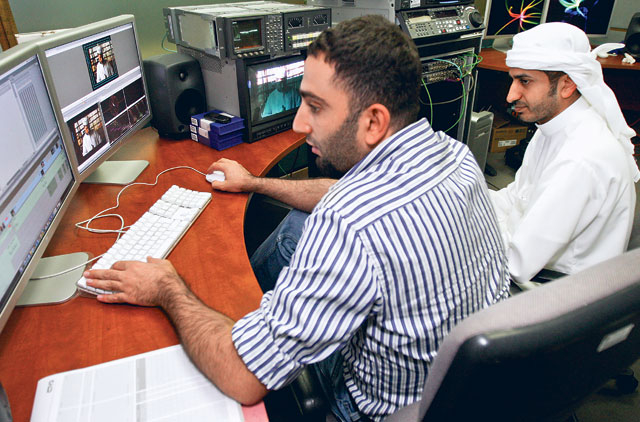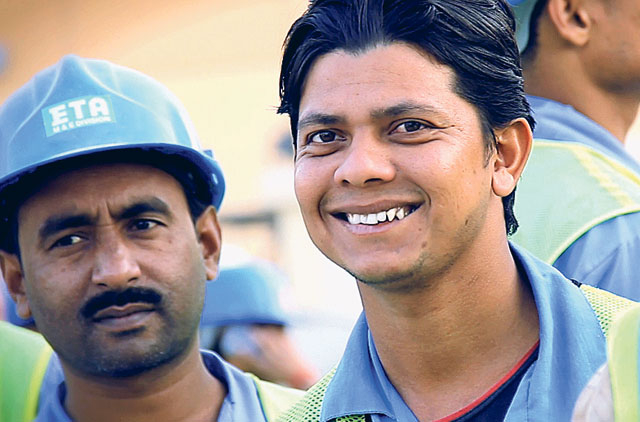
With the third Gulf Film Festival (GFF) well under way, Campus Notes, looks at a selection of this year's 13 films, competing for cash prizes totalling Dh45,000 in the student documentary and shorts segment.
This year's array of films ranges from a look at increased cosmetic surgery in the Emirati community to the plight of the UAE's labour workforce.
Re-construction
For Aisha Al Suwaidi, a Dubai Women's College (DWC) applied communications student, a simple visit to the dermatologist translated into a deeper look at the Emirati society's self-image problem.
An overcrowded clinic waiting room, packed with both men and women waiting to be seen by the cosmetic surgeon, opened her eyes to a reality of increasingly inflated lips and perfect noses amongst her peers.
Further investigation resulted in the 17-minute documentary, Re-construction, which was initially made as part of a university project.
"Everywhere I go I see girls who have done something to their appearance, which I feel has especially increased in the last two years and I wanted to know the reasons," said director Aisha.
An interview with leading UAE cosmetic surgeon, Dr Ali Al Numairy, revealed some shocking findings. "We were shocked when he told us that 54 per cent of Emirati women and 46 per cent of Emirati men undergo plastic surgery every year," she said.
"I had no idea there were Emirati men who did this," she added.
Re-construction takes a look at Islamic scholarly attitudes towards cosmetic alterations. It also explores the opinions of six Emirati women who have undergone various procedures. "We tried to interview men but they refused," said Aisha.
Constructing dreams
Delving into the humanity of the UAE's extensive labour workforce, Moath Bin Hafez decided to make Constructing Dreams, to relay to viewers the human element of the vast majority of the UAE's construction workers.
"I wanted to do something on the workers but my intention was not to make the audience feel sorry for them," said Bin Hafez, a recent media graduate from Dubai Men's College. "I didn't want them to feel pity. I wanted them to simply relate to them on a human level," he added. In the five-minute short, he portrays the hopes and dreams of the construction workers through a series of interviews. "I wanted to find out what makes them happy in life and what their dreams are."
Bin Hafez has previously entered and won awards at the Emirates Film Competition in 2006 and 2007 for Inequity, a documentary about the dwindling presence of the Arabic language among Emirati youths and On the line, which is a fictional story about the complications endured by a group of Emirati men planning to meet up in a shisha café.
Bin Hafez says winning at this year's GFF is not a priority. "Of course winning is nice, but this year my entry is humble, it's not a huge project. I'm just glad to be participating again," he said.
Jin Hunters
Latifa Al Karrali and Shamsa Ahmad went for a more spooky entry. The DWC media students, both directors of the Michael Moore-style documentary, Jin Hunters, decided to go on a ghost hunt in some of the UAE's spookiest haunted houses.
The existence of Jin, an Arabic word loosely translated as a ghost or spirit, have intrigued Latifa and Shamsa since childhood. "We wanted to explore this world to find out if it's real and why people believe so strongly in it," said Latifa.















